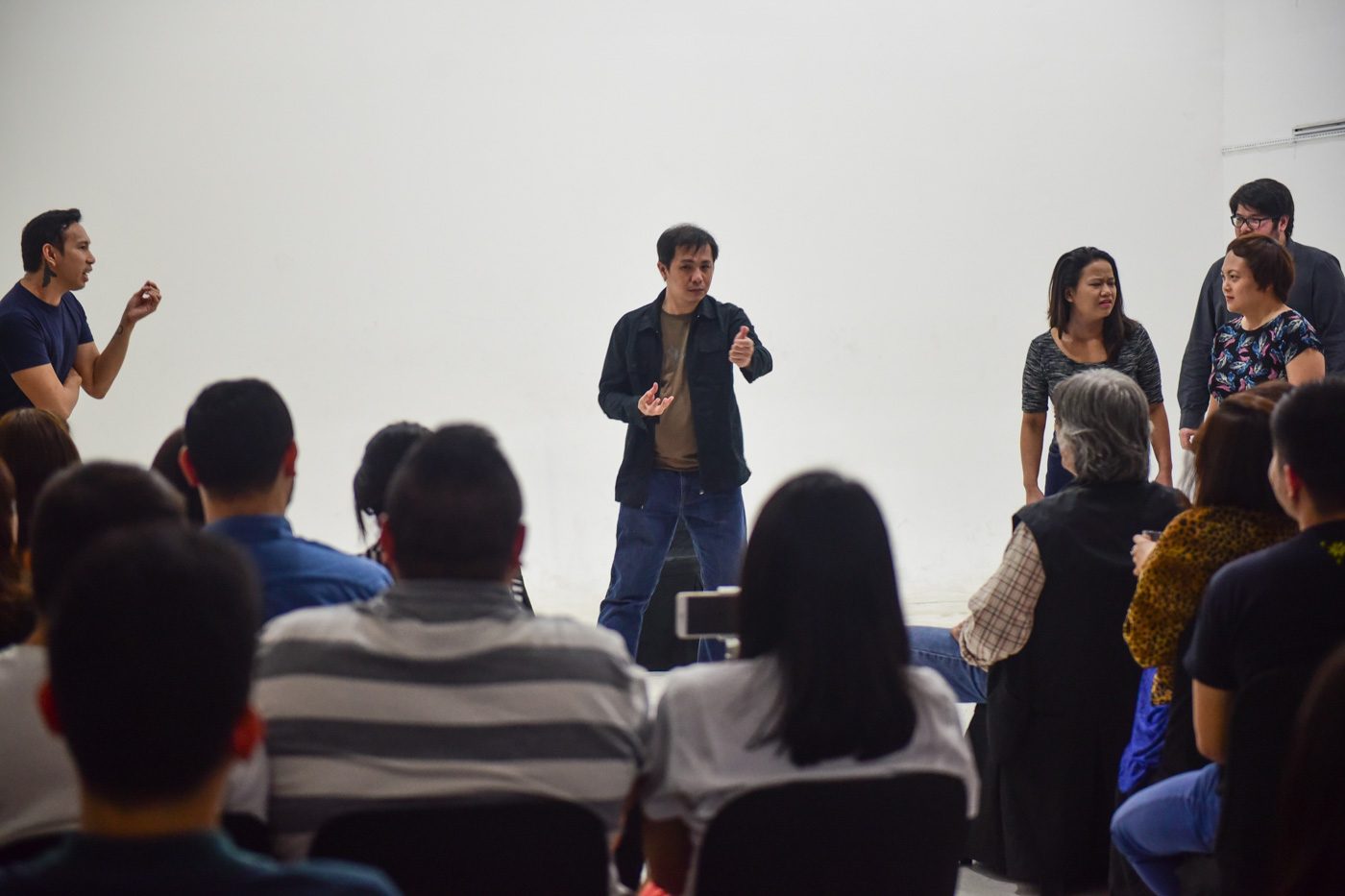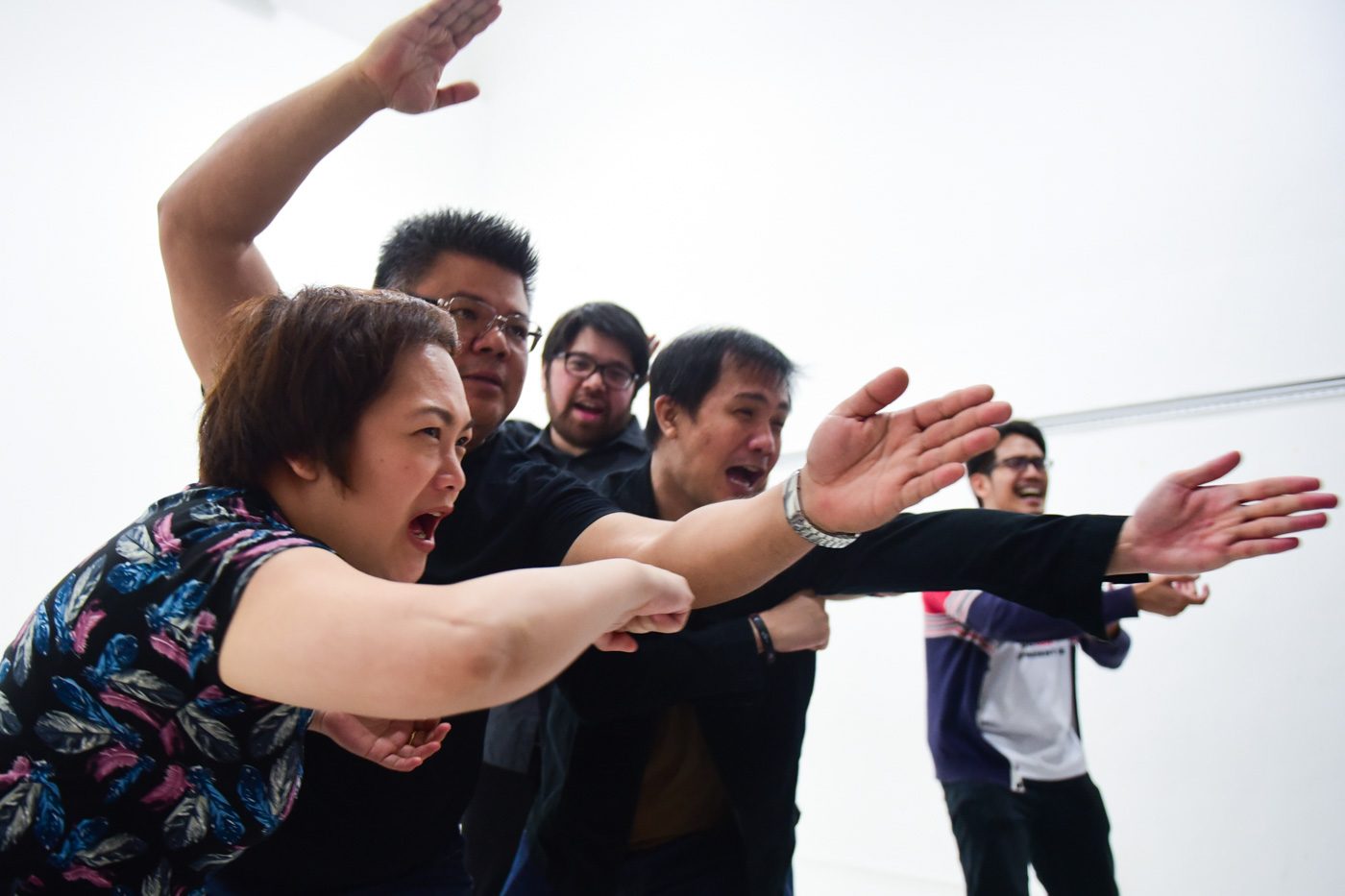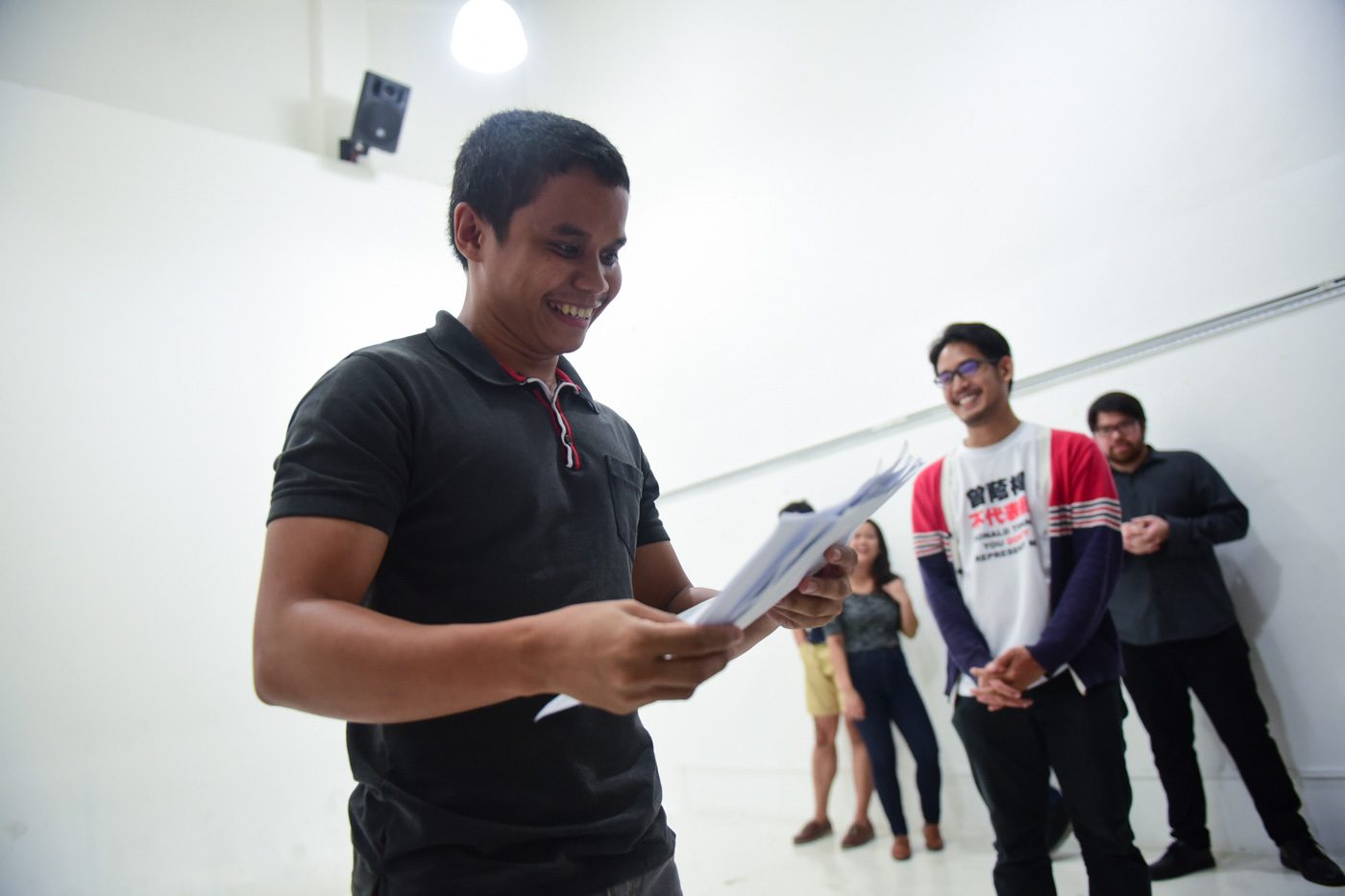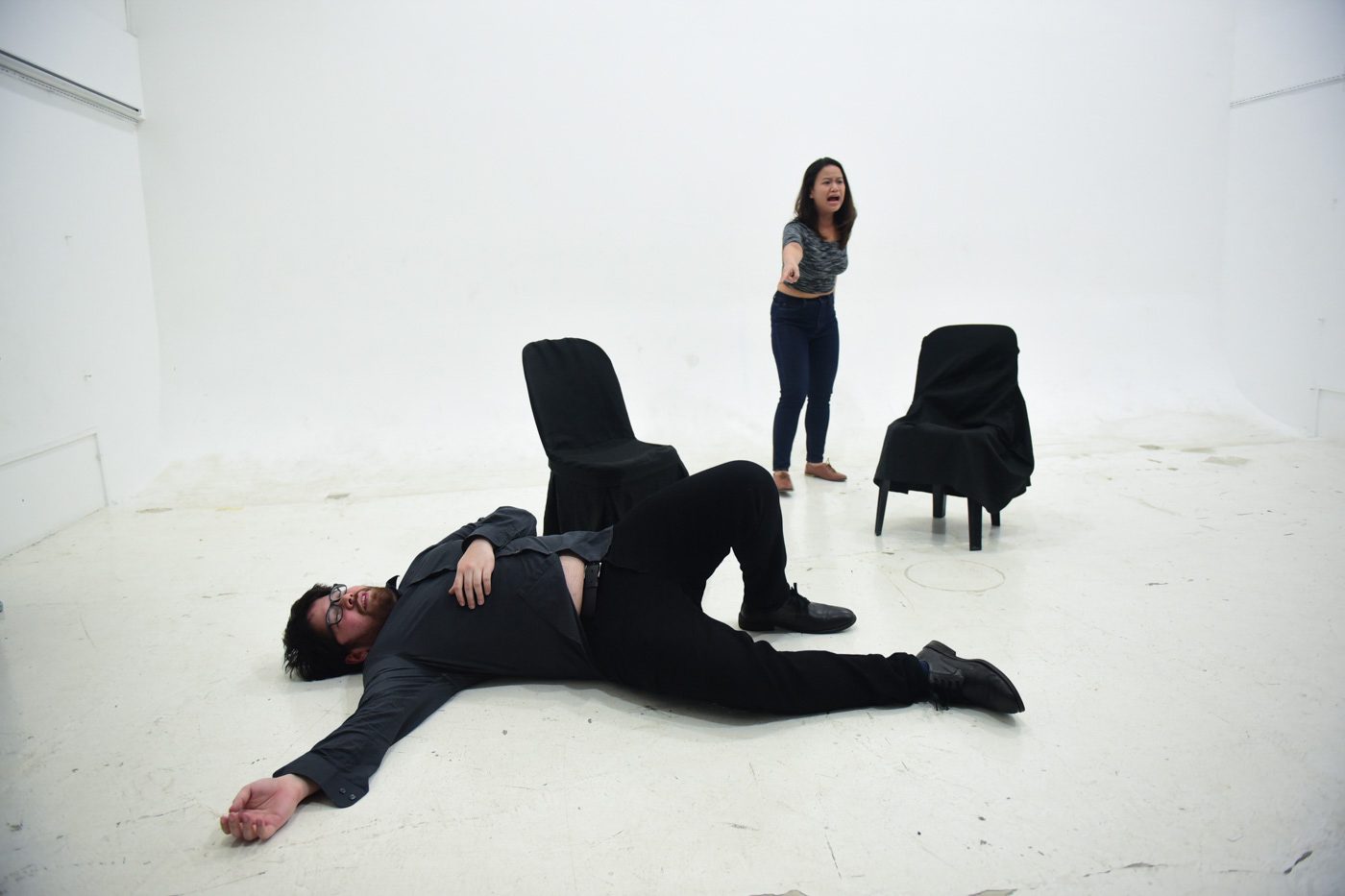SUMMARY
This is AI generated summarization, which may have errors. For context, always refer to the full article.

MANILA, Philippines – “What are the things you always want to remember?” (or was it “What are the things you never want to forget?”) – this was the question that actors from the Silly People’s Improv Theater (SPIT) threw at the audience to kick off their show at the Pineapple Lab on September 21.
The question set the tone for SPIT’s performance that night – a special show called “Makibaka! Don’t get takot!” to observe the 45th Martial Law anniversary.
“Address!” the audience yelled out, in response.
“Crush!”
“Honesty!”
“Justice!”
In less than 3 minutes, the audience had gone through the entire alphabet with their answers – and the show had officially begun. Because it was a Martial Law special, SPIT’s selected resources for the night included a classic piece of Martial Law literature, The Conjugal Dictatorship, and several poems by anti-ML activists of the era.
SPIT asked audience members to read book passages or poem excerpts out loud and based their sketches on them. As usual, everything was completely unscripted – a one-of-a-kind show that they will never get to replicate, and that no one else who wasn’t there will ever be able to see again.


It’s almost frustrating to attempt to tell the stories SPIT told that night – because of course the hilarity of it is something one would want to share with others, especially if one finds him/herself chuckling out of the blue at the memory of one of SPIT’s quips. But replicating the comedy in paraphrase is impossible.
Inevitably, every retelling will fall short, though some of the show’s more memorable moments include: a character whose last name is Tae (shit) and whose first name is Bongbong; a movement that has something to do with wheat bread and an oblivious tuta (puppy); an American whose photos of poor people landed him an exhibit at the “UN Smithsonian” museum; language elitists who get one-upped by their omnipotent househelp; and an Applied Maths major having to choose between his girlfriend and his ideals.
If you weren’t at the show, these will hardly make sense, but that’s precisely what SPIT represents: the value of actually being there, being present – which, in a world rife with keyboard warriors and slacktivists who prefer spouting their views and getting all their information online, is all too relevant.
For SPIT, this is why staging protest plays (as they have) and joining rallies (as some of the audience members did that day) is still important, never mind that no obvious social change happens afterward.


“Being here and now, being present is a statement in itself – that I am remembering, that I am protesting, that I am saying ‘never again,’” SPIT actor Ariel Diccion told Rappler.
“So kahit hindi mo yun ginagamit na hashtag, kahit hindi yun ang sinisigaw mo, kahit wala kang placard, I think yung mere presence mo is enough (So even if you don’t use that hashtag, even if that’s not what you’re yelling, even if you don’t have a placard, your mere presence is enough),” he said.
Fellow SPIT actor Happy Feraren agreed, saying that there needs to be action happening beyond the toxic political climate online. “I think also it’s important that this is something that’s happening outside the online realm where everybody is so vicious, [where] there’s so much misinformation and disinformation,” Happy said. “There’s so much hate online, so I think it’s also good that we get out of this bubble and be with other people physically and actually with people,” she added.

More than that, it’s the idea of reclaiming bodies and reclaiming space in a world that has decided to limit what these are worth. “I think joining these kinds of events, inaangkin mo na (you’re owning them) I am an individual person and I am interacting with different people, different bodies and individuals. The physicality I think is very important,” Ariel said.
“Bodies din ang nava-violate (it’s bodies that are violated) and I think having our own bodies occupy not just the virtual space but actual space that this is our country, our nation… we take up space, we are our own minds, we are bodies, we are voices, hindi lang tayo shout outs (we’re not just shout outs),” he added.
“If the administration will tell me ‘you’re not important,’ I will go and resist and say I am important, I am a body, I am something worth more than P1,000,” Happy said. “I have a voice, I have rights. I can say what I want to say, you can’t silence me. And that becomes the way you resist and the way you protest and the way you remember.”
In the end, speaking out – whether through a play, or at a rally, or even in a discussion with friends – is a celebration of the freedom of speech and opinion that people regained at the end of Martial Law and continue to have today.
“Siguro ngayon masuwerte pa nga tayo na kaya natin gawin ito, kaya natin magsabi ng ganito (Maybe we’re still lucky now that we can do this, that we can say this),” Ariel said. – Rappler.com
Add a comment
How does this make you feel?
There are no comments yet. Add your comment to start the conversation.